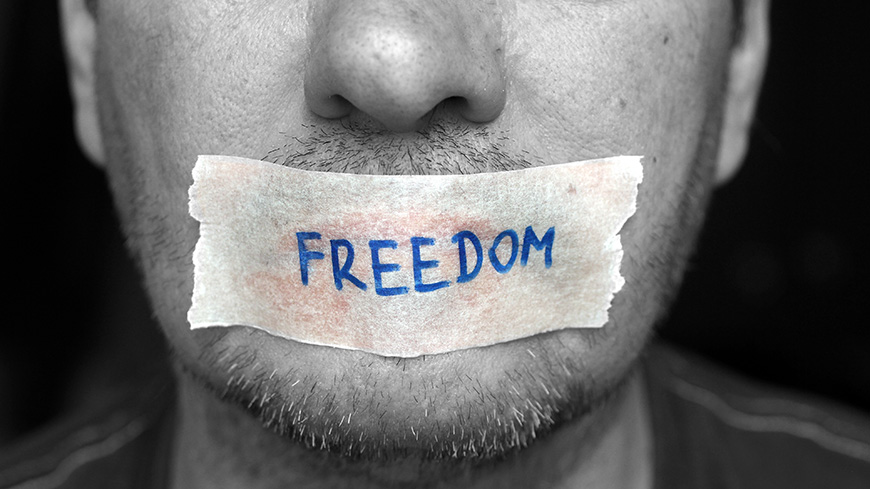The Nobel prize-winning economist Amartya Sen once wrote that countries with a free media do not suffer from famines. Food for (free) thought – literally!
But freedom of expression is by no means a modern idea. 17th century thinkers such as John Locke and John Milton underlined their opposition to censorship as an essential part of the development of democratic government. Most famously of all, the First Amendment of the US Constitution declared that “Congress shall make no law…abridging the freedom of speech or of the press”.
Today freedom of expression, especially in the context of media freedom, is one of the cornerstones of European democracy.
Article 10 of the European Convention on Human Rights (ECHR) outlines its protection of freedom of expression in the following terms: “Everyone has the right to freedom of expression. This right shall include freedom to hold opinions and to receive and impart information and ideas without interference by public authority and regardless of frontiers”.
But freedom of expression is not an absolute right. Exercising this freedom carries with it special responsibilities and duties. The same article 10 of the ECHR that outlines the wide scope of freedom of expression also states that it may be subject to certain restrictions, including the respect for the rights and reputation of others, and for the protection of national security, public order, health or morals.
How far the law should set limits on freedom of expression is one of the subjects examined in a new publication from the Council of Europe: “Freedom of Expression and Defamation” by Tarlach McGonagle, senior researcher and lecturer at the Institute for Information Law at the University of Amsterdam, and a senior researcher at the School of Human Rights Research in the Netherlands.
The law of defamation dates back to the Roman Empire. The offence of libellis famosis was sometimes even punishable by death. While the penalties and costs attached to defamation today may not be life-threatening, they can still have a notorious so-called “chilling effect” on freedom of expression, with prison sentences and huge compensation awards still an occupational hazard for journalists in many European countries. Indeed, the massive sums awarded in defamation damages in some jurisdictions have led to so-called “libel tourism”, with well-funded plaintiffs shopping around the world to find the most lucrative jurisdiction in which to file their suit.
In his study, Mr McGonagle uses the voluminous case law of the European Court of Human Rights to explore all aspects of balancing freedom of expression with the protection of reputation. In particular, he underlines the distinction between civil and criminal defamation, the latter having a far greater “chilling effect” on freedom of expression than the high financial penalties that are often imposed in civil cases. The resulting fear of disproportionate sanctions may cause journalists and others to opt for “self-censorship”, to the detriment of society as a whole.
He also examines many of the key concepts surrounding defamation, including proportionality (the principle that damages should be proportionate to the damage caused to a plaintiff’s reputation), the distinction between facts and value judgments (the latter should not have to be proved to be true, since they are opinions) and legitimate defences against defamation (including the use of true facts, and the so-called “good faith” and “fair comment” defences).


